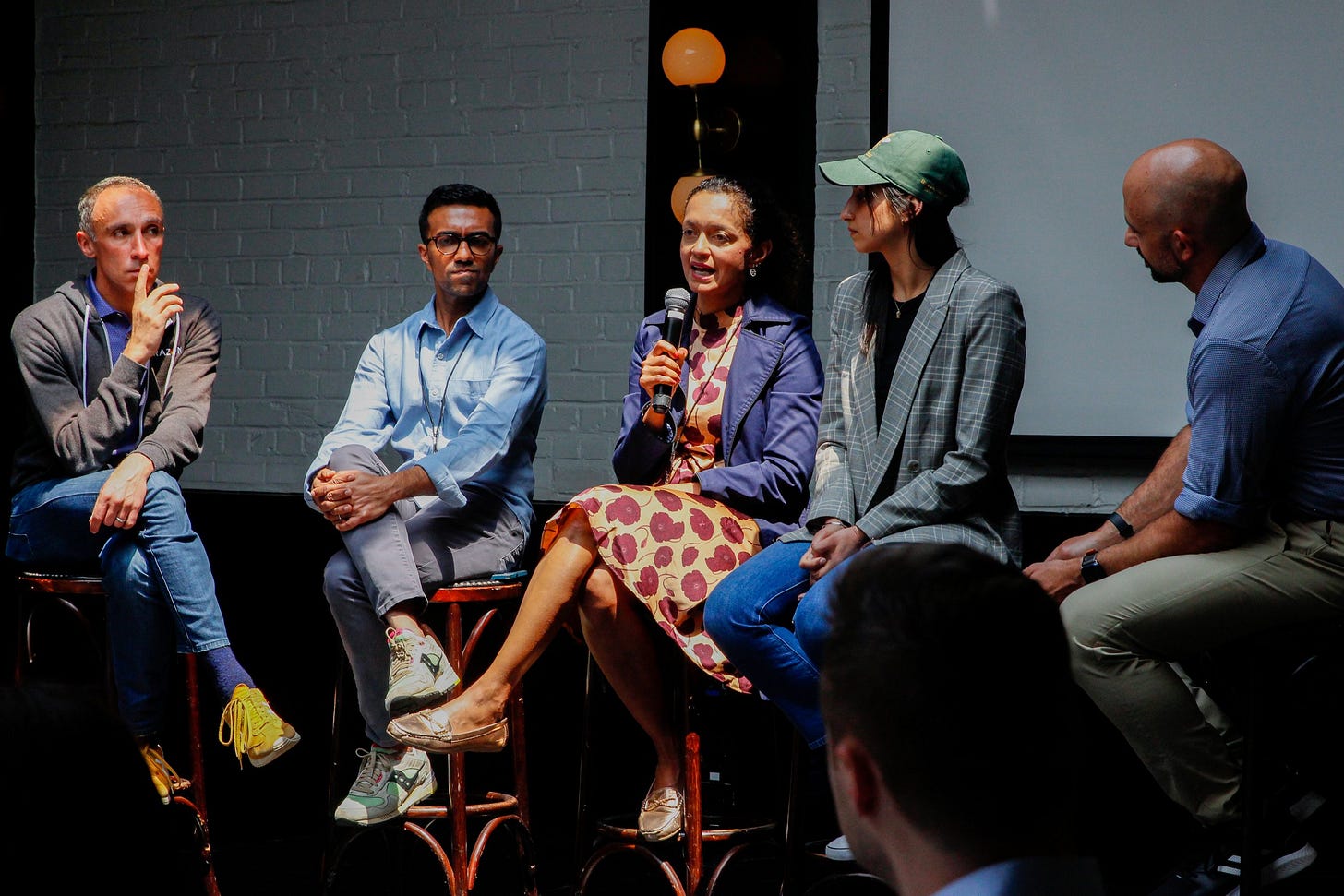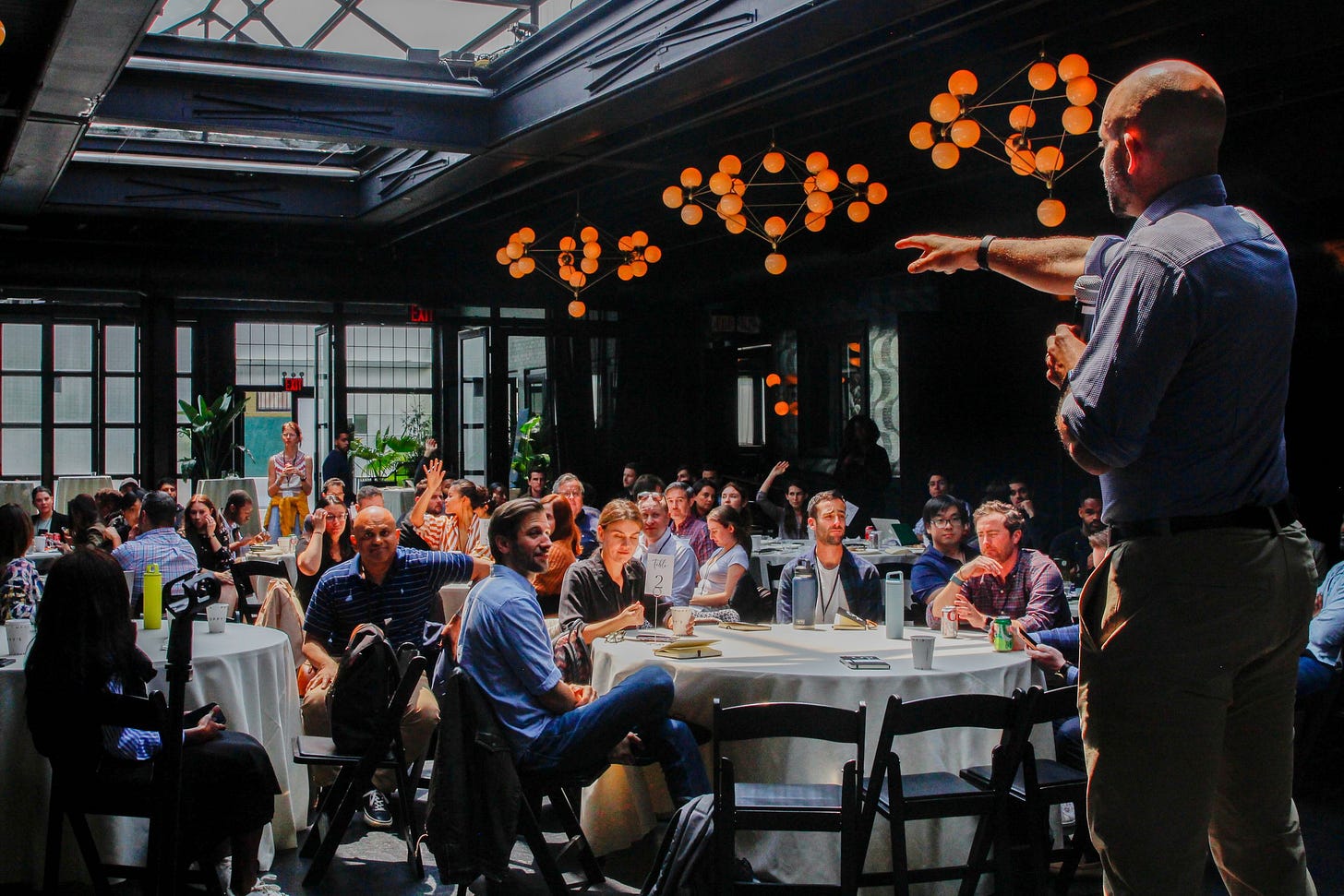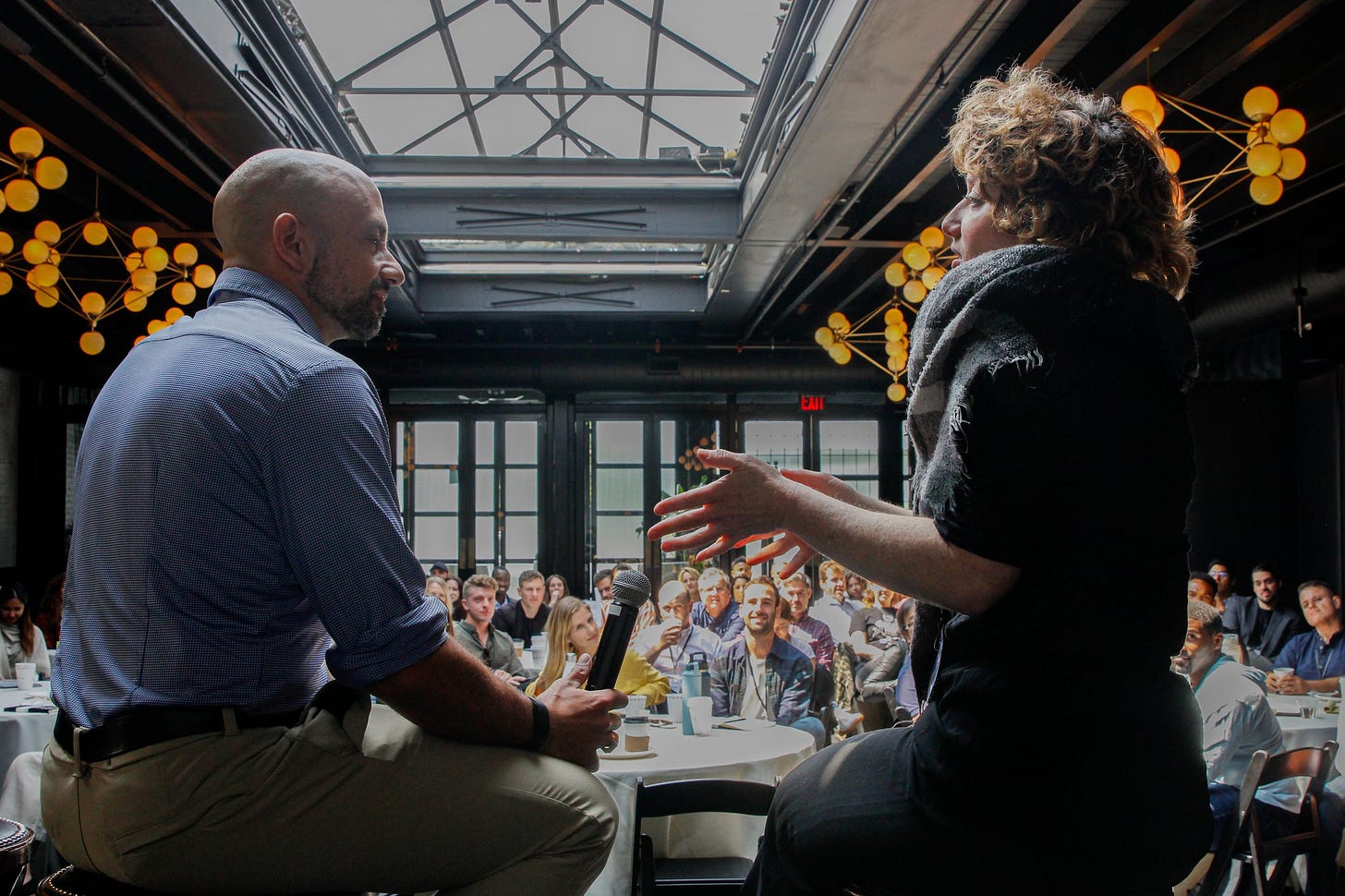Why Most Startup Events Suck for Both Investors and Founders
When's the last time you showed up to something that was super helpful to your startup and worth the time?
Recently, Brooklyn Bridge Ventures hosted our Pre-Series A Offsite—a one day single track conference that matched 60 top startups planning their Series A round within the next 12 months or so with 15 Series A check-writers for a day of panels, networking and small group working sessions.
The feedback from the conference, our fourth in person and sixth overall, was fantastic on both sides—and while we learn new things each time we do it, I wanted to take a step back to talk about some of the event strategies and insights that underpin how we like to put these gatherings together. We’ll be sharing lots more about the content of this conference and the perspectives that our investor and founder speakers shared over the next few weeks.
All of our planning starts with the following two premises:
1) We’re not in the business of events, and so if we’re going to do something, it shouldn’t suck, because then we’re wasting everyone’s time, including our own.
2) Most startup events suck.
Why?
It’s overly simplistic to say that it’s because most events are run by people who are in the business of running events, so they’re too focused on scale and not enough on quality. There are lots of smaller meetups run by community members that also struggle to create value for everyone involved.
I think the first thing is that organizers aren’t intentional about the level of curation going into an event. That’s not to say that open events are bad. I love open events and we need more of them. However, if you throw them, you need to design the event around the fact that a lot of people in the room are going to be newbies or somewhat aspirational in their pursuits. So, if you’re going to have this type of audience, open networking isn’t super useful when barely anyone in the room has actually learned anything to share.
Curation also affects who’s willing to headline. We’ve had investors from USV, Lightspeed, GV, Bain and CRV among others and the reality is that they’re able to talk to fundraising and the overall market better than some random angel who isn’t really tapped into the heart of the market. These folks aren’t just going to show up to just anything either—so you need to promise them something. In this case, we had over 300 applications for our 60 spots, so they had some certainty that there was going to be quality in the audience. It’s also a bit of chicken and egg—which is why it helps that I’ve been in the industry for so long and know these people well enough that they trust me when I come along to make the ask. Plus, you’re going to get the top startups applying when those are the types of firms participating.
Here’s the hard truth about experience as well. Some people just have better experience than others. If you worked for a company from seed to IPO, you’ve got a better story to tell than someone who hasn’t seen an exit yet. If you’re a partner, you can generally speak more to what your firm looks for than if you’re the associate. If someone is trying hard to learn about the fundraising market, not just “any” investor will do. You ideally want someone who has seen a couple of cycles and has some sway in their own firm.
We were also intentional about making sure we cast a wide enough net. If all you do as a white male investor is tweet the fact that you’re holding an event, you can imagine who all the attendees are going to be that sign up—and they’re not going to be representative of who is actually working on interesting stuff. We carefully monitored who was applying and made sure we sent around extra nudges to certain sources that we thought would be able to broaden our representation of who really does making up the “best” Pre-Series A startups in and around NYC.
We also regularly do a series called #notapitch, which anyone can come to and share their idea. I don’t even care if they thought of the idea that very morning. They give me a minute and I give them a minute or two of my quick first impression—and that’s an appropriate amount of feedback for an uncurated group of founders who may have literally just thought of the concept. Open is cool, but the rest of the event design needs to fit with the openness. You don’t do a five-company pitch event with 20 minutes of slides for each company if the applications were open.
The other big thing about the lack of value in startup events is that you rarely get speakers who are willing to say anything deeply honest or significantly useful for the majority of the people in the room. That’s either because the participants just don’t really have great experience. They may have big titles but not much in the way of insight driven by being hands-on at a turning point moment for a top tier company during an interesting time in the market.
I interviewed Liz Zalman, Founder of strongDM, and co-author of Founder vs Investor, an upcoming book about this complex relationship. I had only briefly met her before, but I had gleaned enough about her personality to know she was not shy and would have something meaningful to say. She also had top-tier experience—raising over $100mm from brand name investors like Sequoia and Tiger—and not from being a formerly IPO’d founder or having ran Y Combinator before. She crushed it and was absolutely the talk of the event. Several founders commented on how much they appreciated her “real talk” perspective.
And sure, I’ll take at least a little bit of credit on the moderating side. I know what founders really want to hear from speakers and I’m persistent about trying to draw it out of them. I’ll never let anyone blow smoke on a panel or gloss over a critical move without getting the tactics out of them.
Finally, you need to be a bit empathetic. How long are you making people sit? What time of day is this happening? So many events are ruined because people are checking their watch and mentally checked out.
One of the reasons I’m able to get VCs to stick around for the whole day is because we’re not stealing precious family time after work, but we’re also building in enough downtime for each VC that they can triage e-mail, schedule a call when they’re not on a panel, etc. They’re participating just enough to stay engaged, but not feel trapped.
Plus, the hurdle of needing to come to an outer borough is just enough that we’re not going to lose them to an outside coffee meeting as easily as if you did it in the middle of Union Square.
So while open tech parties with no structure are fun, they’re always going to be a crapshoot as to whether or not they’re ultimately worth your time professionally.



